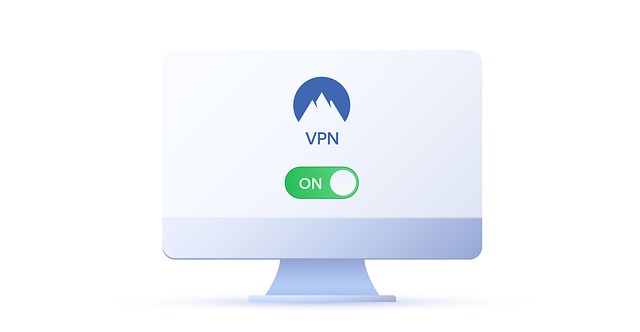This post will show you the best DNS, IP, and WebRTC leak test sites. Also, how to overcome the leaks.
DNS, IP, and WebRTC leaks happen every day when we browse the internet; because we use local ISPs, we are bound to have these leaks. DNS leak is a problem that keeps your privacy on the verge of being exposed. It’s a situation that occurs between your PC and your DNS resolvers.
However, using a VPN to browse privately can leak your IP address since most free VPN services have limited features.
This post will show you several good websites on which to get a befitting leak test. However, let’s take a look at the meanings of these terms.
Table of Contents
What Is A DNS Leak?
A DNS leak is when a security defect makes a DNS appeal to be disclosed to the Internet service provider’s DNS servers, even when you disguise it with a VPN.
This enables internet service providers to track the website an individual may be visiting.
What Is An IP Leak?
An IP leak will occur if an original IP address is discovered when connected to a VPN.
Usually, when browsing the internet with a VPN, your ISP sees the VPN’s hidden IP address. However, your IP address can still be leaked through other means.
What Is A WebRTC Leak?
This situation is similar to an IP leak, but your IP address is revealed through your browser’s WebRTC performance.
A webRTC leak will re-identify you through the WebRTC application programming interface; this can occur anytime, regardless of whether your VPN works.
READ ALSO: Full Private Internet Access VPN Review
What Causes DNS, IP, And WebRTC Leaks?
Let’s start with a DNS leak; we already know what a DNS leak is, but what causes these leaks? The main reason for DNS leaks is that your ISP can stop any DNS request going via their servers; with this, internet service providers can now view your web history, while some of these leaks can reveal your IP address.
Now, what causes IP leaks? Some individuals usually think IP leaks are caused mainly by VPN developers, but operating systems, browser plugins, and other browsing software can cause IP leaks. A VPN failed connection can also cause IP leaks.
Lastly, what causes WebRTC leaks? WebRTC is the leading cause of its leak. WebRTC is a new technology available in modern browsers that enables the browser to perform specific tasks; according to Torrent Freak, that technology can be used against your browser, allowing it to reveal your IP address. However, the risk of getting a WebRTC leak is lower than the rest.
READ ALSO: VPN Chaining: Can You Use Multiple VPNs at Once?
Best DNS Leak Detection Sites
Because we want to protect our privacy, individuals must check if these leaks occur frequently. We’ve listed a good series of sites to help you detect leaks.
This unique website allows you to detect DNS leaks; as soon as the sites load, your IP address will be displayed at the top, and you can quickly run a cogency test.
Dnsleak.com
A superb and colourful website that allows you to run a DNS leak test for free; it would also display your IP address.
This website is similar to the one above; it has the same interface and design and will help you run a high-speed email leak test.
Another site made by the same web designers as the one above, the site would help you conduct an IPv6 leak test.
Browserleaks.com specializes in WebRTC leaks and would help you run a fast test.
Ipx. ac
Regarded as an excellent leak test site, Ipx. Ac can test all web browser leaks, including DNS, IP and WebRTC.
Ipleak.org
It is a very welcoming site that allows you to check VPN leaks.
Ipleak.net
Made by AirVPN developers, it helps you fish out leaks by just performing high-speed tests.
How Do I Fix DNS, IP, And WebRTC Leaks
Now that we’ve discussed what these leaks are and the situation that causes them, we should also be able to fix them. Hence, we will show how to fix these leaks.
We’ll follow the previous order, starting from the DNS leak. To fix a DNS leak, you need a VPN that incorporates built-in DNS leak protection. Using a VPN, your DNS request will always be routed from a tunnel provided by your VPN service, which is usually encrypted.
- CHECK OUT: Our Deals Page for the Latest VPN Deals
Fixing an IP leak depends on what causes the leak; if it’s a VPN connection failure that causes the leak, you may require a VPN with a Kill-Switch option. A kill-switch option is an ability that is available in specific VPNs; it is primarily used to observe your network connection.
As soon as the kill switch notices a development, all connection activity ceases until you restart the VPN or start your network adapter over again.
WebRTC leak is the most accessible; you can fix WebRTC by disabling it from your web browser’s settings. When it’s disabled, you won’t have to fear unexpected leaks. Getting a browser extension will also help you turn it off.
READ ALSO: Tor+VPN Guide: How to Combine Tor Browser With VPN
Conclusion
Your privacy and reputation are your uttermost priority; with these leaks, your privacy can be infringed upon.
Nonetheless, A VPN service with DNS IP protection can prevent such leaks. That way, you can surf the web without hassles.
RELATED ARTICLES
- 15 Best VPN For Coronavirus Quarantine Holiday
- 4 of the Best VPNs for Upwork (with a dedicated IP address)
- Full Review of CyberGhost VPN – Fast and Secure VPN Service
- VPN vs SDP: Which Technology Is Best for You?
- Top 4 Dangerous VPN Providers to Avoid in 2024
- Full Surfshark VPN Review 2024 [Fast & Reliable]
- Is WikiLeaks Still Active? [We Have The Answer]
- 15 Top WikiLeaks Alternatives (Number 5 Is Our Favourite)
About the Author:
Fiorella Salazar is a cybersecurity expert, digital privacy advocate, and VPN evangelist based in Canada. She holds an M.Sc. in Cybersecurity from a Canadian university. She is an avid researcher and frequent contributor to several cybersecurity journals and magazines. Her mission is to raise awareness about the importance of digital privacy and the benefits of using a VPN. She is the go-to source for reliable, up-to-date information on VPNs and digital privacy.







